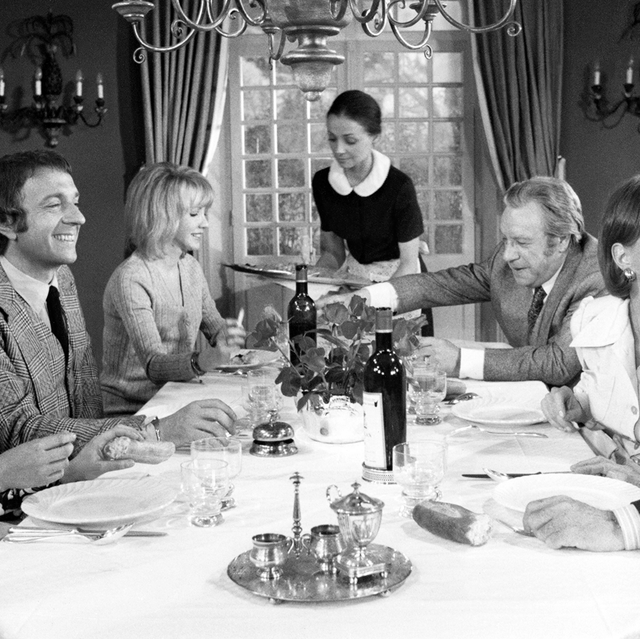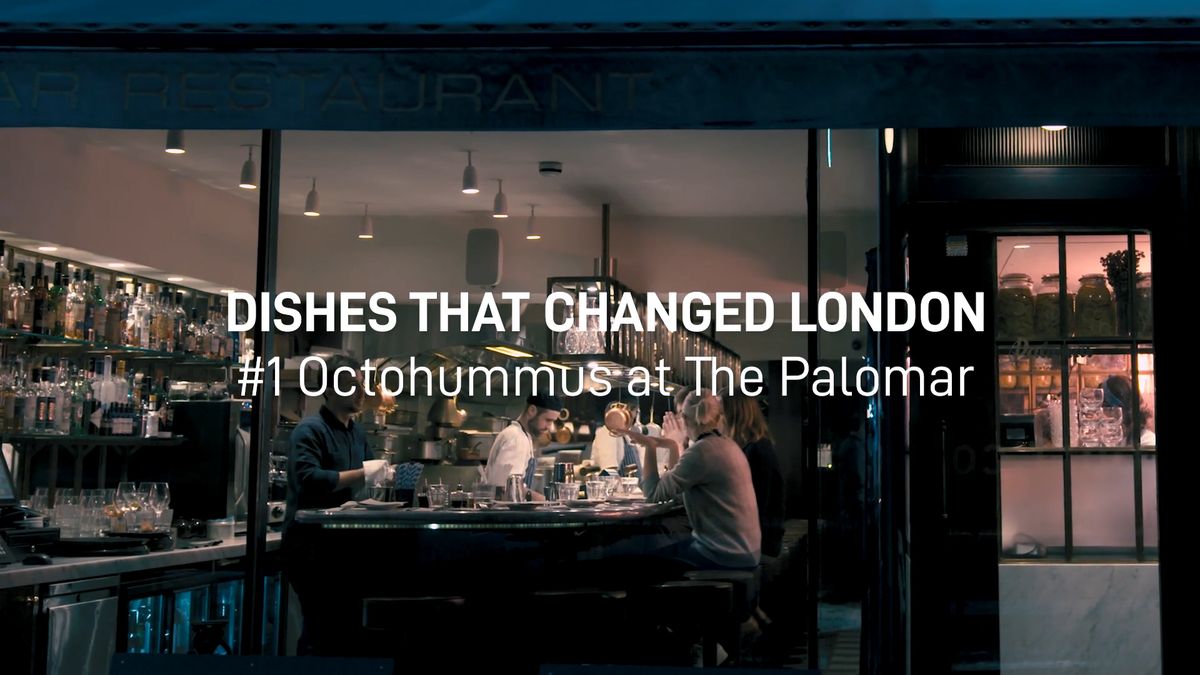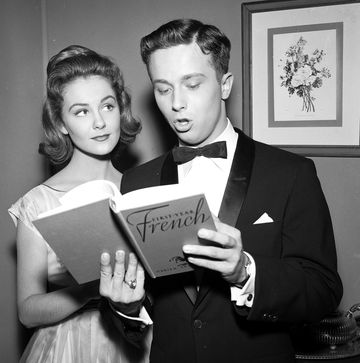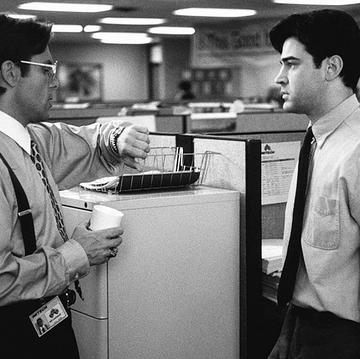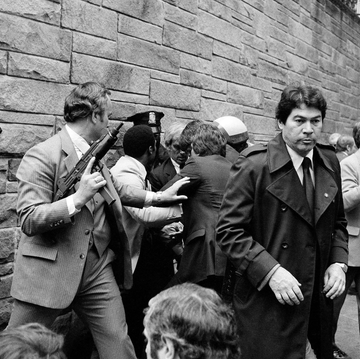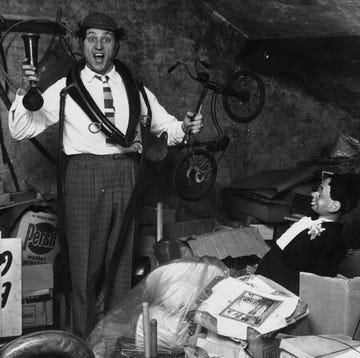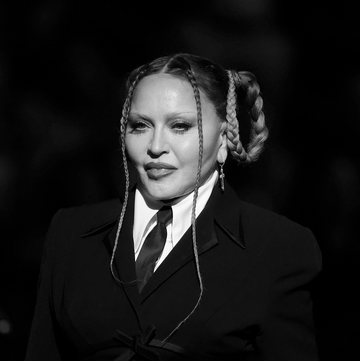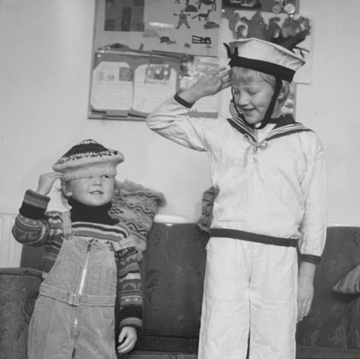I don’t like to boast, but, when I take it into my head, I can throw dinner parties the way Zeus used to throw lightning bolts. I just raise a hand, emit a giant, self-satisfied roar, and a hundred delightful canapés drop onto a starched tablecloth, followed very quickly by a perfectly roasted lamb, potato gratin so rich it refuses to pay its own taxes, a bowl of my own mint sauce, a steaming plate of crunchy green beans, and the sort of trifle that would make ambrosia taste like ashes in the mouth of your average Athenian mortal. Indeed, if dinner parties were an Olympic sport, as opposed to a sport on Mount Olympus, I’d be Michael Phelps doing the butterfly stroke. I can run a placement like Usain runs 100 metres.
But, when it comes to these dinners, the food and the wine aren’t really the point, are they?All effort should be invisible. Conversation’s the thing — talking, shocking and mocking. When recalling great dinner parties of yore, I don’t think of the sauces, but instead I savour the surprises of opinion and confession that the evening brought forth. I remember, for instance, the time Martin Amis was telling everybody Stalin was the ultimate wretch, making great play of Uncle Joe’s argument that psychoanalysis was invented as a way of destabilising the West. “Ah, yes, I get it,” said the person sitting next to him. “Stalinbad!” To this day, Julian Assange allegedly denies that he ate my lasagne with his fingers and then licked the plate, whilst telling us how Egypt would be set free. (He did, and it wasn’t.) Another time, Jonathan Miller fell onto the floor and rolled around a bit when presented with a bag of “Nice” biscuits that said “Wank”,“Fuck” and ‘“Cunt” on them. Puerile and vulgar, I know, but puerility and vulgarity have their place at a good dinner party. So do sentiment and solidarity. And genuine niceness. I once took my mother to a dinner party in New York where three grandes dames told her exactly how to think about ex-husbands. Showing off is underrated, too. (In the meekness Olympics, everyone’s a hero. Bring back the braggard and the diva.) At a supper party in Belsize Park, I saw a young Hollywood actor take off his shirt at the table and spin from chatroom to chatroom on Chat Roulette, at that time a special new zone of engagement on the internet. The evening was blazing with the kind of energy that is made, not found. That’s the point.
Anyway, until recently, I’d fallen out of love with parties, but I’m finding my way back. It might become my resolution for 2024: unfurl the oven gloves. A few things have changed, though. Dinner parties now, I’ve noticed, can be heavy-going. People tend to believe a little too much in what they believe, and self-certainty is deadly. When guests preach from their various pulpits in the culture wars, the people around them either feel inordinately chastised or they live in fear that they might say the wrong thing. Again. Who wants to order a taxi both ways for that kind of evening? At a very good dinner party, there is no such thing as the unsayable, for the simple reason that everything may be contradicted on the spot. Shot down. People can talk and be talked round. Persuaded. Also, in the days before it was illegal for human beings to make passes, it was quite intriguing to watch people openly flirting through the haze of candlelight.
Somewhere around the pudding wine, people should be falling in love or being offended in just the right measures. All things being equal, the dinner should knock for six everything showing on TV that night. Even if (as with so many dinners) the evening was mainly spent discussing serial dramas, in the way people used to discuss novels. The essayist Charles Lamb would happily remind us that human interaction, over dinner, over cups of wine, is a nourishing habit from cave to grave. Taking it on, you discover the width of your social imagination.
I was only joking about being an Olympian. One is only ever as good as one’s last supper, and I’ve had a few disasters. Food catastrophes are fine — the time I left out the béchamel sauce; the time we put too much vermouth in the chicken dish and it tasted like loo cleaner — but it’s the People Hating Each Other imbroglios that really hurt. One time, I accidentally sat a TV host next to the one person he’d been trying for years to avoid. It was so bad, he wrote it up in his memoirs. Another time, an Irish republican called a Blairite outside for a fight. And then there was the time in Tuscany when an American novelist’s wife got so drunk she fell down the mountain. The conversation dried up and she had to be taken to the pronto soccorso.
Generally speaking, dinner parties work best if they don’t involve a fast helicopter to the local hospital, but if you value storytelling you should be willing to take the risk.
All attempts at wisdom must end in a listicle. So, I put it to you: what are the five best dinner party scenes in all of fiction? Here’s mine. If you disagree, then maybe — now that I’m back on my horse, in The Battle of the Polite Brigade— we could have it out over dinner. Some will bring their moral outrage instead of wine.
- The dinner scene in Goodfellas. “In prison,dinner was always a big thing. We had a pasta course and then we had a meat or a fish.”
- Banquo’s feast in Macbeth. Top banter.
- The annual Christmas dinner in Joyce’s story“The Dead”. Some dodgy singing and some brittle politics but a sublime evening overall.
- The dinner in Ian McEwan’s Atonement. A little masterpiece of noticing, restrained anger and small talk writ large.
- "This is good food,” says one of the diners in the movie Alien, before a sharp-toothed arrival bursts out of John Hurt’s chest. I never claimed the dinner party should always be easy. And sometimes it takes an unexpected guest to bring things to a memorable conclusion.
Andrew O'Hagan is the author, most recently, of the award-winning novel Mayflies. His next novel, Caledonian Road, will be published in April 2024. The piece appears in the Winter 2023 issue of Esquire.
